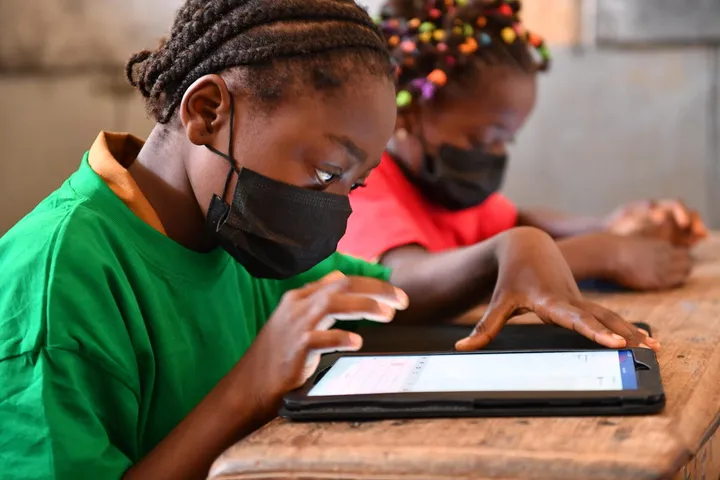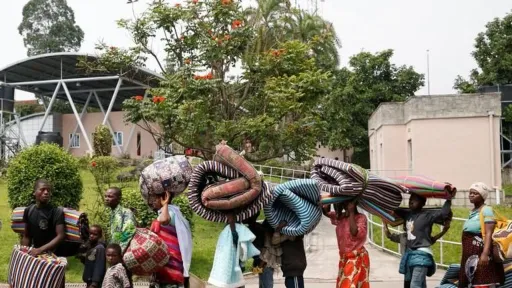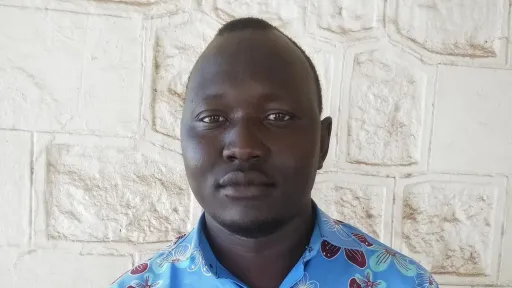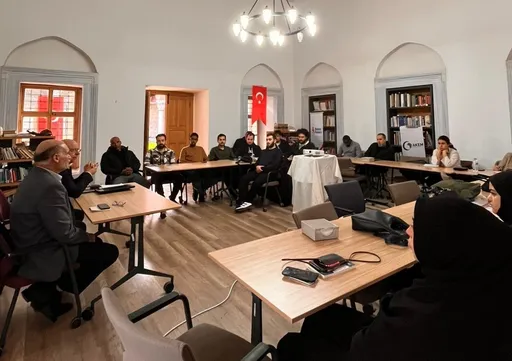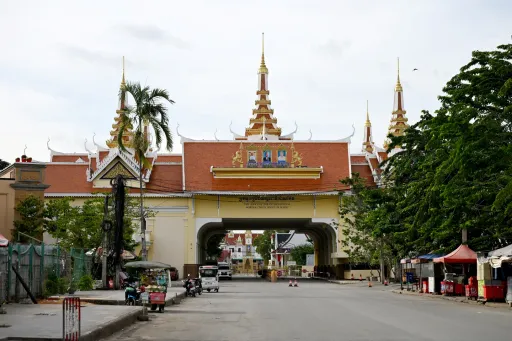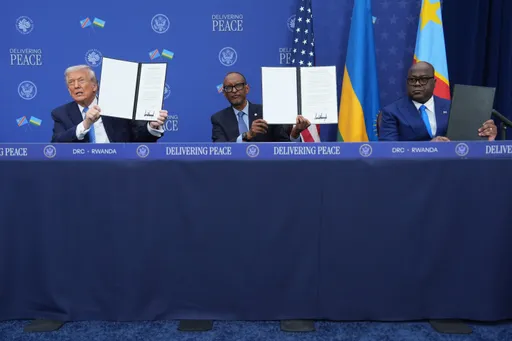African leaders have joined their global counterparts in felicitating with Muslims as masses of pilgrims embarked on a symbolic stoning of the devil in Saudi Arabia on Sunday to mark the final days of the Hajj, or Islamic pilgrimage, and the start of the Eid al-Adha celebrations around the world.
Nigeria’s President Tinubu, in his Eid al-Adha greeting, said the celebration is a reminder of the virtues of “sacrifice, faith, and obedience.”
Tinubu also reflected on the economic situation in the country, saying he acknowledges the sacrifices that Nigerians have made.
“President Tinubu affirms that the sacrifice and great expectations of citizens will not come to naught as already propitious outcomes are beginning to manifest with the economy strengthening,” Tinubu said in his message.
'Cherished memories'
President YoweriMuseveni of Uganda also extended his greetings, where he prayed for “a wonderful celebration filled with joy, peace, and cherished memories.”
Kenyan President Ruto posted a card on his official X account congratulating Muslims.
Turkish President Recep Tayyip Erdogan also extended the Eid al Adha greeting on Sunday, wishing peace and tranquillity across Türkiye and the broader cultural region.
"I wholeheartedly congratulate our nation and the Islamic world on the occasion of Eid al Adha," he wrote on X.
"I hope that this holiday brings peace to our hearts, tranquillity to our country, and peace to our spiritual geography, especially Palestine and Sudan," he added.
'Solidarity to Muslims'
UN Secretary-General Antonio Guterres also extended Eid al-Adha greetings on Sunday, showing solidarity to Muslims around the world who are unable to celebrate with their loved ones due to ongoing conflicts.
"This Eid Al-Adha, I extend my solidarity with all Muslims who, because of conflict, violence, and division, will not be able to celebrate with their loved ones," Guterres said on X.
"May the values of solidarity and empathy that this occasion inspires guide us towards compassion and peace for all," he added.
The stoning is among the final rites of the Hajj, which is one of the Five Pillars of Islam. It came a day after more than 1.8 million pilgrims congregated at a sacred hill, known as Mount Ararat, outside the holy city of Mecca, which Muslim pilgrims visit to perform the annual five-day rituals of Hajj.
Symbolic stoning
The pilgrims left Mount Arafat on Saturday evening to spend their night in a nearby site known as Muzdalifa, where they collected pebbles to use in the symbolic stoning of pillars representing the devil.
On Sunday morning, crowds headed on foot to the stoning areas. Some were seen pushing disabled pilgrims in wheelchairs on a multi-lane road leading to the complex housing the large pillars.
Many pilgrims will spend up to three days in Mina, each casting seven pebbles at three pillars in a ritual to symbolise the casting away of evil and sin.
While in Mina, they will visit Mecca to perform their final “tawaf,” or circumambulation, which is circling the Kaaba in the Grand Mosque anticlockwise seven times. The Farewell Tawaf marks the end of Hajj as pilgrims prepare to leave the holy city.
Indonesia celebrations
While most countries marked Eid al-Adha on Sunday, others, like Indonesia, will celebrate it Monday.
Once the Hajj is over, men are expected to shave their heads and remove the shroud-like white garments worn during the pilgrimage, and women are expected to snip a lock of hair as a sign of renewal and rebirth.
Most of the pilgrims then leave Mecca for the city of Medina, about 340 kilometres (210 miles) away, to pray in Prophet Muhammad’s tomb, the Sacred Chamber.
➤ Click here to follow our WhatsApp channel for more stories.



